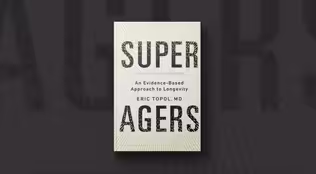
Economist analyzes fallout of Trump’s sweeping tariffs
Clip: 8/2/2025 | 5m 26sVideo has Closed Captions
Economist analyzes fallout of Trump’s sweeping new tariffs and firing of BLS commissioner
The White House’s announcement Friday that it will impose hefty tariffs on imports from nearly 70 countries next week triggered the worst day on Wall Street in more than a month. Those economic jitters were compounded by a weaker than expected jobs report, which prompted Trump to fire the Bureau of Labor Statistics commissioner who produced it. Economist Ernie Tedeschi joins Ali Rogin to discuss.
Problems playing video? | Closed Captioning Feedback
Problems playing video? | Closed Captioning Feedback
Major corporate funding for the PBS News Hour is provided by BDO, BNSF, Consumer Cellular, American Cruise Lines, and Raymond James. Funding for the PBS NewsHour Weekend is provided by...

Economist analyzes fallout of Trump’s sweeping tariffs
Clip: 8/2/2025 | 5m 26sVideo has Closed Captions
The White House’s announcement Friday that it will impose hefty tariffs on imports from nearly 70 countries next week triggered the worst day on Wall Street in more than a month. Those economic jitters were compounded by a weaker than expected jobs report, which prompted Trump to fire the Bureau of Labor Statistics commissioner who produced it. Economist Ernie Tedeschi joins Ali Rogin to discuss.
Problems playing video? | Closed Captioning Feedback
How to Watch PBS News Hour
PBS News Hour is available to stream on pbs.org and the free PBS App, available on iPhone, Apple TV, Android TV, Android smartphones, Amazon Fire TV, Amazon Fire Tablet, Roku, Samsung Smart TV, and Vizio.
Providing Support for PBS.org
Learn Moreabout PBS online sponsorshipALI ROGIN: Good evening.
I'm Ali Rogan.
John Yang is away.
Countries around the world are facing a flurry of steep new tariffs on goods sent to the United States.
The White House's announcement yesterday that it will impose hefty taxes on imports from nearly 70 countries next week triggered the worst day on Wall Street in over a month.
Those economic jitters were compounded by weaker than expected jobs numbers, which prompted President Trump to fire the Bureau of Labor Statistics commissioner who produced them.
Earlier, I spoke with Ernie Tedeschi, former chief economist for the Biden White House and the director of economics at the Budget Lab at Yale University.
We discussed the sweeping tariffs, but I began by asking him about the dismissal of the labor statistics commissioner, Erika McEntarfer,.
ERNIE TEDESCHI, Former Chief Economist for Biden White House: Erika McEntarfer, is one of the most devoted public servants in government and among economists, one of the most devotees data focused and rigorous people that I know.
ALI ROGIN: And you've written on X, that this type of political interference sets a bad precedent.
What are your concerns?
ERNIE TEDESCHI: The United States has some of the most trustworthy economic data in the world, both our labor market data and our GDP data.
Lots of different entities and consumers throughout the world rely on it for making important decisions.
If suddenly that data is politically manipulated and is not trustworthy, these people that use and rely on the data may have to go elsewhere to less reliable sources for data and may make decisions that are not as sound, you know, not as data focused.
ALI ROGIN: And you've been tracking tariffs closely since the very beginning.
What do you think this latest tranche of tariffs is going to do to the prices of everyday products?
ERNIE TEDESCHI: Yeah, so I think over the next two to three years, you would see overall prices rise by just under 2 percent overall.
Now that doesn't sound like a whole lot to a normal person, but let's keep in mind that 2 percent is the Federal Reserve's annual inflation target.
So this is like getting an extra year's worth of inflation on top of what we normally would have gotten for the average American family, you know, that would be the equivalent of $2,400 per household per year.
So that's meaningful.
And it's going to hurt lower income families more than higher income families because they're more vulnerable to tariffs.
I think even in the short run, even by the end of the summer, you might start to notice price increases in key import sensitive items, especially during back to school shopping.
ALI ROGIN: Right.
So over the long term, after those first spikes in back to school products like you just mentioned, where are the other product categories where you think we might see the biggest impact from the tariffs.
ERNIE TEDESCHI: Other than electronics and clothing, the other areas where we might see large effects would be things like crops and automobiles eventually going up in price by 10 to 12 percent even in the long run.
And the thing is that we find that even after many years, when consumers and businesses, you know, try to find domestic alternatives to tariff items or they try to find imports that are not tariffed as much and maybe even we have a little bit of reshoring, prices are still persistently higher after five or 10 years, which is a sign that very little, if any, of this production is actually going to come back to the United States.
And there aren't going to be that many substitutes that consumers are going to be able to find for, you know, the higher tariff items that they buy.
Now, there's a little bit of savings to come in the long run with changes in behavior, but tariffs are going to make consumer products persistently more expensive even in the long run.
ALI ROGIN: President Trump has said that these tariffs are going to, over the long term, strengthen the economy, lower the trade deficit.
But based on what you're seeing so far is your analysis, that's actually what's going to happen in the medium and long term.
ERNIE TEDESCHI: We find that in the first two years, the tariffs shave about half a percentage point off of economic growth in the United States.
That's like shaving a quarter off of our expected economic growth over the next two years.
That's a significant amount.
It gets a little bit better in the long run.
But we still find that over five, 10 years, the American economy is persistently smaller.
ALI ROGIN: There are still a few days before these tariffs are set to go into effect.
But what, if anything, are you going to be looking for in the time between then and now?
ERNIE TEDESCHI: The key piece of data that I look at most often now is government revenue data on tariffs.
And that revenue data suggests that tariffs are definitely biting, but they're not, you know, we're not collecting as much tariffs as we would have expected beforehand given the announcements.
We're collecting tariffs at a rate that's more like a 10 percent.
We started out the year at two and a half percent, but it's not as high as we would have expected given the announcements.
I'm going to be focusing a lot on the consumer price index and the inflation data.
ALI ROGIN: Ernie Tedeschi with the Yale Budget Lab, thank you so much.
ERNIE TEDESCHI: Thanks for having me.
Former detainees speak out about abuse in El Salvador prison
Video has Closed Captions
Clip: 8/2/2025 | 5m 28s | Former Venezuelan detainees speak out about abuse in El Salvador’s mega-prison (5m 28s)
How the ‘Creek Crawlers’ are inspiring others this summer
Video has Closed Captions
Clip: 8/2/2025 | 5m 22s | How the ‘Creek Crawlers’ are using their summer vacation to inspire others (5m 22s)
New book explores the science behind ‘super aging’
Video has Closed Captions
Clip: 8/2/2025 | 4m 47s | New book explores the science behind ‘super aging’ and longer, healthier lifespans (4m 47s)
News Wrap: More aid-seekers in Gaza killed by Israeli forces
Video has Closed Captions
Clip: 8/2/2025 | 2m 49s | News Wrap: Dozens more aid-seekers in Gaza killed by Israeli forces, witnesses say (2m 49s)
Providing Support for PBS.org
Learn Moreabout PBS online sponsorshipSupport for PBS provided by:
Major corporate funding for the PBS News Hour is provided by BDO, BNSF, Consumer Cellular, American Cruise Lines, and Raymond James. Funding for the PBS NewsHour Weekend is provided by...















